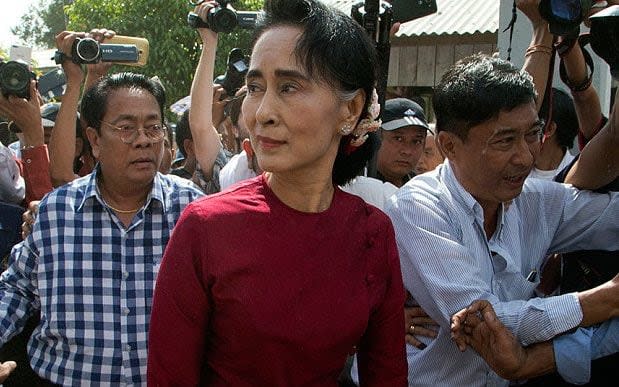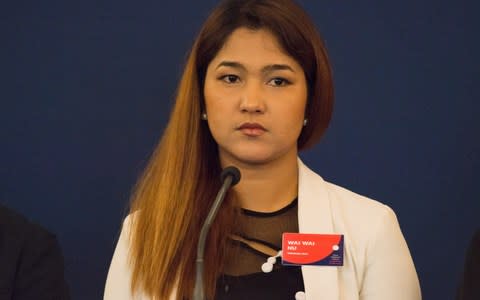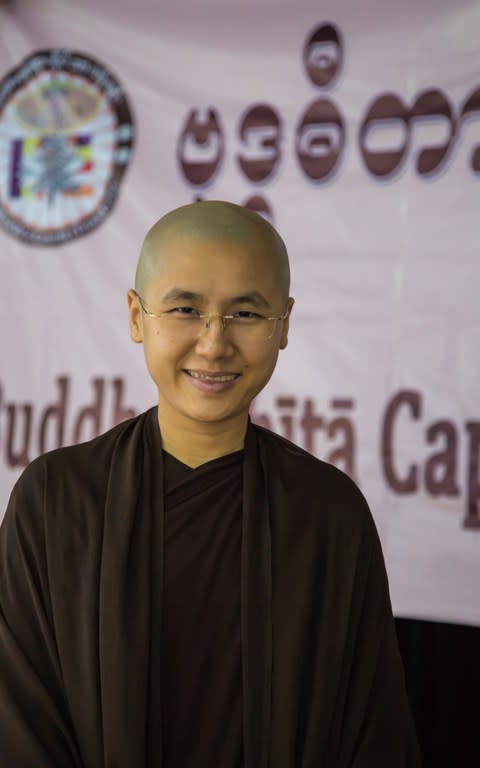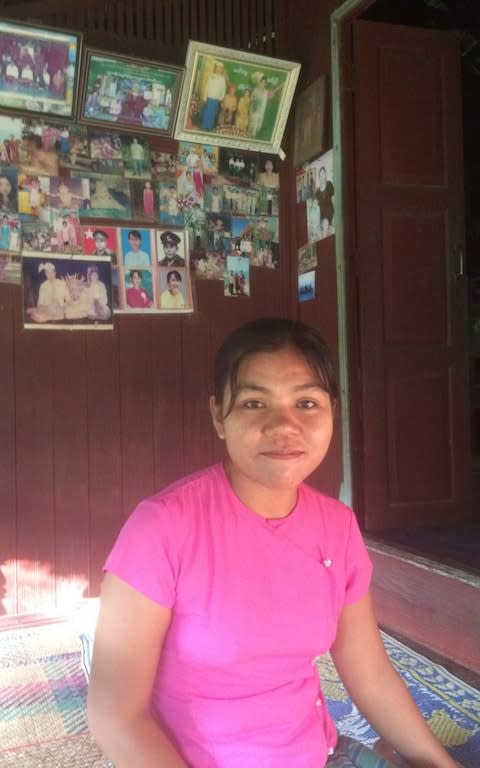As Aung San Suu Kyi stays silent over the plight of the Rohingya - here are the other women now rising up

In 2015 ahead of the first free and fair elections in Myanmar for decades, there was only one name on everyone’s lips: Aung San Suu Kyi.
The human rights activist and Nobel Peace Prize laureate – and former political prisoner who was released from house arrest in 2010 after 15 years imprisoned by the military junta - was a symbol of hope . Her belief in her country was so total that she was often referred to as “The Lady”. And The Lady paid back the compliment to her people at a rally days before the vote.
“I’m not afraid at all,” she told the adoring crowds. “Because I believe in you.”
But since that time of hope and belief, cemented when The Lady won the elections, things couldn't be more different today. It's now a year since the start of what has been called a genocide - a brutal crackdown by the military against the Rohingya Muslim minority. The acts of horrific violence have driven more than 700,000 to flee to Bangladesh.
Whereas once Suu Kyi was compared to Nelson Mandela and seen as a symbol of peaceful resistance in the face of oppression, to date she has repeatedly refused to speak out against the military's campaign of violence against the Rohingya population. The assault, which began in August last year, saw villages razed to the ground and tens of thousands killed and women assaulted and raped. And while the United Nations have said the violence amounted to “ethnic cleansing” , Aung San Suu Kyi's response, or lack thereof, has been widely condemned by international figures from Malala Yousafzai to Archbishop Desmond Tutu.
With more than 400,000 people signing a petition suggesting her Nobel Prize be revoked, The Lady has had a considerable fall from grace. The idea that she would do things differently and keep the spirit of hope, justice and freedom aloft has died alongside the slaughter.
But there are still plenty of people left in Myanmar who are still burning that flame for a democratic future for all and many of them are women. Here are the other 'ladies of Myanmar' - their stories are new stories of hope in their country's complicated next chapter.

Wai Wai Nu
Wai Wai Nu, 31, a a Rohingya Muslim and lawyer and activist, she’s already spent almost a quarter of her life in jail.
In 2005, aged just 18, she was imprisoned simply because her father was an opposition MP. She wasn’t released for seven years.
“It will be in my heart forever, that pain,” she says. “But then I feel more dedicated in fighting injustice.”
Since being freed, she has campaigned for human rights, including for the Rohingya.
"I can't believe this is happening in my country, before my eyes...but now you can see the gravity, the scale, the scope of the situation. It's just horrific," she says of what has happened. But she says the fight now is for safety, recognition and a return for the Rohingya, and for justice for the crimes against them.
“When it comes to crimes against humanity, there has to be justice,” she says.

Ah Moon
“Bitch, slut, get out of the country,” says Ah Moon, 25, as we sit in the Yangon traffic. The popstar is reading out her social media messages.
Ah Moon, who rose to fame in a TV talent show, pushes boundaries every day, like a Myanmar Beyoncé: in her stage outfits, her lyrics, in her attempts to blend traditional melodies with modern pop, even by the fact that she is a woman performing on stage alone in a country where some people think this automatically casts doubts on her morality.
“I want to show people from Myanmar that just because you are from this country, you don’t need to box yourself in,” she says.
Ah Moon wants particularly to inspire girls in a country where gender equality is still some way off, and her stance has made her a feminist inspiration for many. She's also her own manager. "I sometimes meet people who think I'm just a little girl trying to be bossy. I think it's because the world is used to a man's society. Not just here, in developing countries; even in the West a girl is going to be called bossy if she's in charge of everything."

Ketu Mala
Shaven-headed, scarlet-robe clad Buddhist monks in Myanmar are highly respected. Sadly, it is not the same for their female counterparts: the form of Buddhism practiced in Myanmar means the nuns are not recognized as such, and face daily discrimination.
That has not stopped Ketu Mala, 36, who is not only a nun but perhaps Myanmar’s first feminist nun, and certainly its first Facebook nun, who preaches online as well as in person. As well as trying to get recognition for nuns, she has set up an extremely successful Buddhist school network, and campaigns for everyone - including Muslims in Myanmar- to be treated with the Buddhist principle of metta, or loving kindess. She recently met former UN Secretary General Ban Ki-Moon.
“Society has forgotten the nuns. We have to show we are standing up for ourselves. If society accepts that we can, we can do most things,” she says.
Mi Mi*
Mi Mi* was walking home from work with her dad when it happened.
“There was a splash,” the 23-year old remembers. The splash was acid, and the man splashing it on her was her ex-boyfriend. Her injuries were profound, and she was still in the early stages of treatment when I met her six months after the attack.
But while she is scarred, she is not scared, and she is now fighting to get justice against her attacker – the first woman in Myanmar ever to do so for an attack of this type.
“I think I am brave enough,” she says. She's become an inspirational figure in Myanmar, where acid attacks are on the rise. There are no official figures, because often domestic violence of this type is treated as a family issue, and the laws protecting women are extremely outdated. Many do not even come forward. As such, Mi Mi* is a test case - and she hopes that her struggle will mean that the attacks stop, because men realise they cannot act with impunity any more.

Htin Htin Htay
Growing up Htin Htin Htay saw no things a child should see when she was trapped between the military and, in her area, the armed wing of the All Burma Students' Democratic Front. Dead bodies under bridges, a woman’s hands cut off as she prayed to the army to spare her husband - all scorched on her memory.
Now in her thirties, she is one of just 68 women running local politics in Myanmar - making 0.4% of the 16,785 village tract adminstrators. She believes that the role of local leaders is to prevent such atrocities ever happening again by ensuring that all people are represented and treated fairly.
“I thought, why? Why do people kill, why can’t we respond? So this situation remains in my blood…and this is what encouraged me to work as a leader.”
The Other Ladies of Myanmar by Jennifer Rigby is published by ISEAS and available on Amazon
